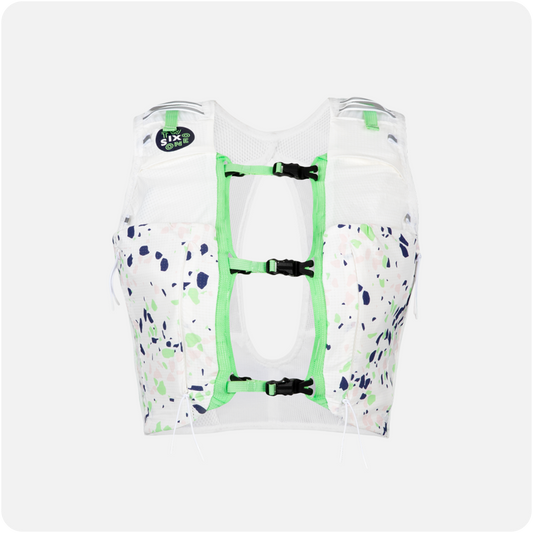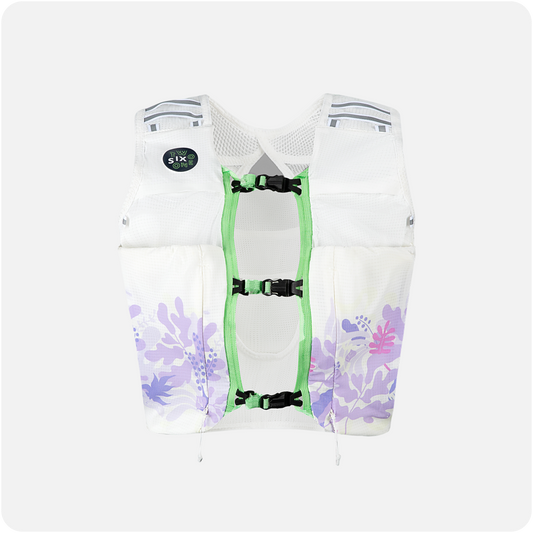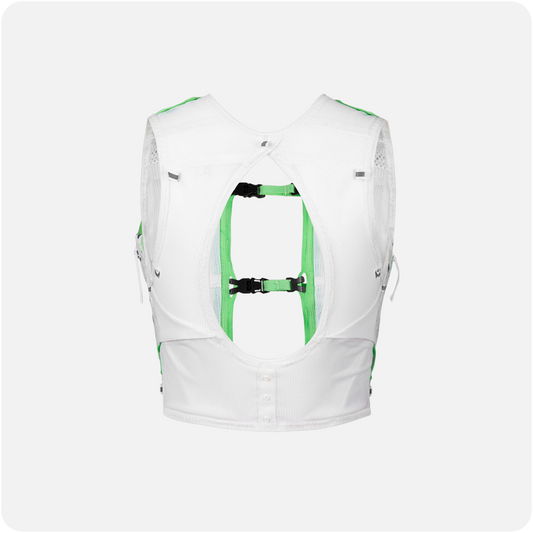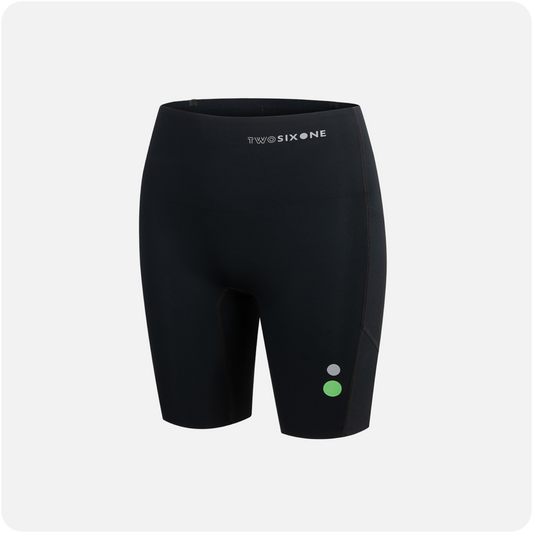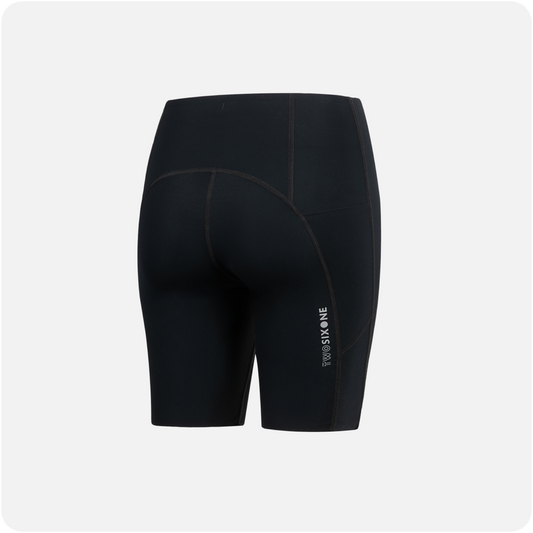How to stay hydrated during a trail run?
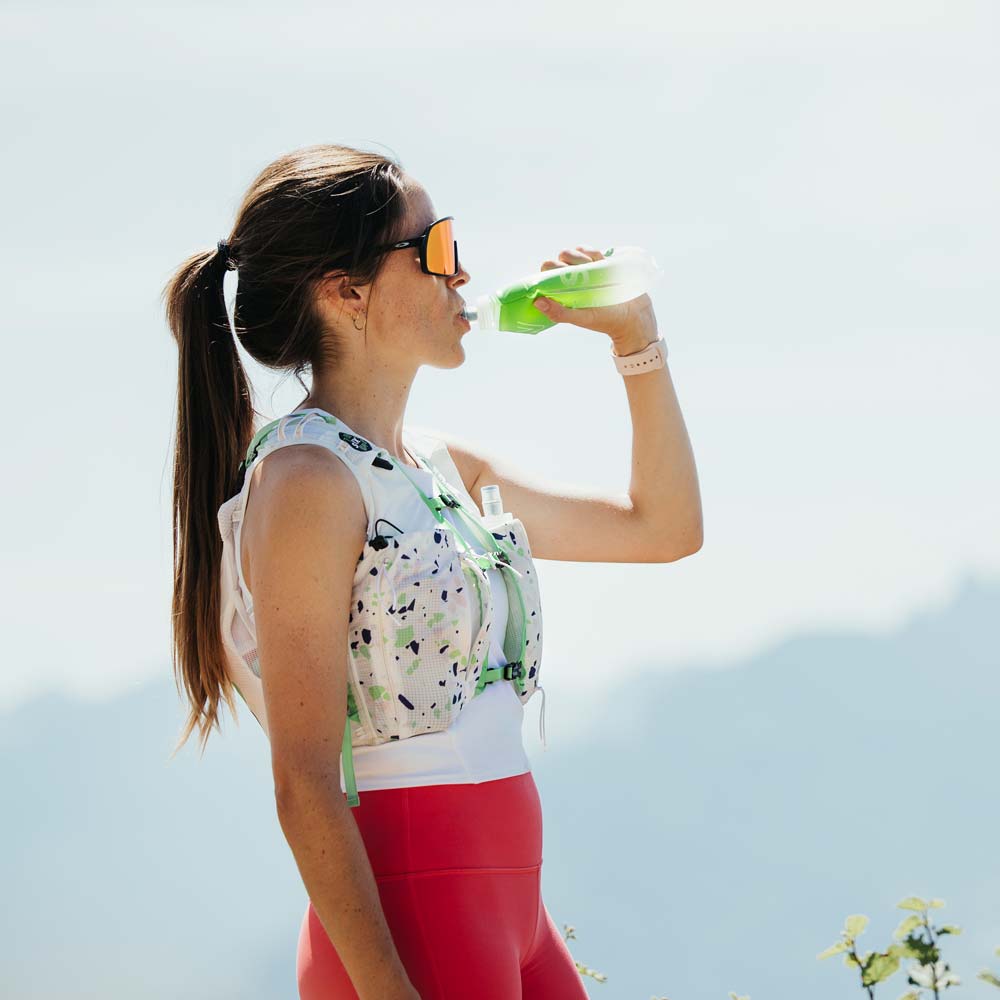
The importance of hydration when trail running!
- Why is hydration crucial when trail running?
- How to hydrate properly before running?
- Hydrate while running
- Post-race hydration for optimal recovery
Why hydration is crucial when trail running
The impact of dehydration on performance
When trail running, your body is subjected to intense and prolonged exertion. Dehydration can quickly set in, reducing your performance, increasing the risk of injury, and impairing your ability to recover. When you run, your body loses water through sweat, which is necessary to regulate your body temperature. Dehydration of just 2% of your body weight can decrease your performance by 20%!
The benefits of good hydration
Proper hydration helps maintain your energy, lubricate your joints, and transport essential nutrients throughout your body. Maintaining proper hydration improves your concentration and endurance, while reducing the risk of muscle cramps and heat stroke.
How to hydrate properly before running?
Prepare your body with adequate hydration
Hydration doesn't start on race day, but long before. Make sure you're drinking enough water daily to prepare your body for the effort. A good guideline is to aim for 2 liters of water per day, adjusting according to your weight and activity level.
What to drink and when?
Prioritize water throughout the day, but you can also incorporate electrolyte drinks to maintain your mineral balance, especially in hot weather. Avoid alcoholic and caffeinated drinks, which can lead to dehydration.
Foods rich in water
Include water-rich foods in your diet, such as fruits and vegetables (watermelon, cucumber, oranges) for extra hydration. This will help you stay hydrated without having to constantly drink.
Techniques and tips for hydrating while running
Listen to your body, don't wait until you're thirsty
During the race, don't wait until you feel thirsty to drink. Thirst is a late indicator of dehydration. Drink regularly, about 2-3 sips every 15 minutes, to maintain your hydration level.
The ideal hydration equipment
Our 500ml soft flasks are perfect for trail running. They're lightweight, easy to fill and drink from, and fit neatly into the pockets of your Artemis pack. For added convenience, use our compatible straws, which allow you to drink without removing the flask from your pocket.
What to drink during the trail?
Water is essential, but there are also sports drinks: energy and isotonic.
Energy drinks are designed to provide a quick source of energy thanks to a high carbohydrate content. They are particularly useful for intense and prolonged efforts.
Isotonic drinks, on the other hand, are formulated to quickly replace fluids and electrolytes lost through sweat. They contain a concentration of mineral salts and carbohydrates similar to that of the human body, allowing for rapid absorption.
We recommend alternating between water and a sports drink.
Energy drinks
- Provide carbohydrates for rapid energy intake.
- Contain electrolytes to replace those lost through sweat.
- Available in many flavors to vary the pleasures.
- May contain added sugars and extra calories.
- Risk of gastrointestinal disorders if consumed in excess.
Benefits :
- Electrolyte Balance: Helps replace lost electrolytes (sodium, potassium, calcium, magnesium) which is crucial for preventing cramps and maintaining fluid balance.
- Rapid absorption: Thanks to their concentration similar to that of body fluids, they are absorbed quickly by the body.
- Less energetic: Contain fewer carbohydrates than energy drinks, so they don't provide as quick a source of energy.
- Cost: They can be more expensive than water or some simple energy drinks
The choice between an energy and isotonic drink depends on the duration and intensity of your run as well as your personal needs.
- For short runs (less than an hour): Water or a light isotonic drink may be enough to maintain your hydration without excessive carbohydrate needs.
- For long, intense runs: Energy drinks can provide the energy needed to maintain your endurance, but they should be consumed in conjunction with isotonic drinks to ensure proper electrolyte balance.
Signs of dehydration to watch for
Learn to recognize the signs of dehydration: dry mouth, dizziness, fatigue, dark urine. If you experience any of these symptoms, increase your water intake and take a break if necessary.
Post-race hydration for optimal recovery
Replenish your water reserves
After your run, it's crucial to replenish lost fluids. Drink plenty of water in the hours following your workout. A good guideline is to drink 1.5 times your body weight in sweat. For example, if you lost 1 kg, drink 1.5 liters of water.
Recovery drinks
Choose drinks rich in electrolytes and carbohydrates to help replenish your glycogen stores and balance your minerals. Sports drinks or simple coconut water can be good options.
Foods for extra hydration
Water-rich fruits and vegetables, such as oranges, watermelon, and cucumbers, are excellent for supplementing your post-race hydration. They also provide essential vitamins and minerals for recovery.
Listen to your body
Every runner is different. Listen to your body and adapt your hydration to your specific needs. If you feel fatigued or your recovery is slow, it could be a sign that you haven't been drinking enough. Increase your fluid intake and monitor your body's signals.
Conclusion
Staying hydrated is key to staying healthy and efficient while trail running. By following these tips and using the right equipment, like TwoSixOne soft flasks, you can optimize your hydration before, during, and after your run. Remember, staying hydrated allows you to fully enjoy every moment on the trail.
With these tips, you'll be ready to tackle your next races with confidence. Hydrate regularly, listen to your body, and savor every moment of your trail running adventure!




